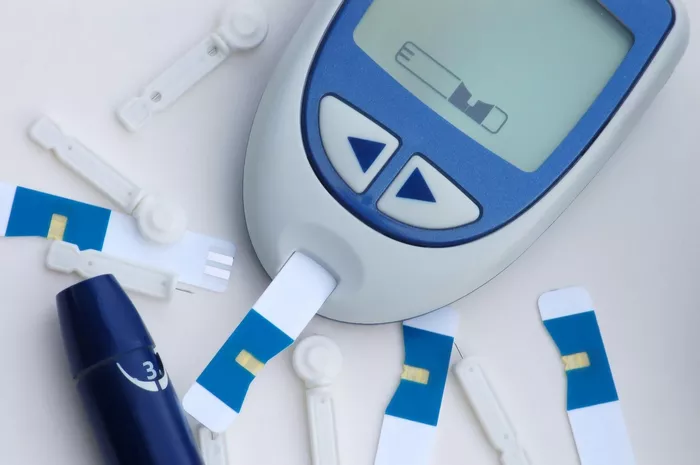Hyperglycemia, or high blood sugar, is a condition characterized by elevated levels of glucose in the blood. It is a common issue among individuals with diabetes and can occur due to various factors, including insufficient insulin production, insulin resistance, or improper management of diabetes. Living with hyperglycemia requires careful management to prevent complications and maintain overall health. This comprehensive article explores the nature of hyperglycemia, its causes, symptoms, potential complications, and strategies for managing and living with the condition.
Understanding Hyperglycemia
What is Hyperglycemia?
Hyperglycemia occurs when the blood glucose level exceeds the normal range. For most individuals, normal fasting blood glucose levels are between 70 and 99 mg/dL. Hyperglycemia is typically defined as a fasting blood glucose level of 126 mg/dL or higher, or a blood glucose level of 200 mg/dL or higher at any time of the day.
Causes of Hyperglycemia
Type 1 Diabetes: In type 1 diabetes, the pancreas produces little to no insulin, a hormone essential for glucose uptake by cells. Without adequate insulin, glucose accumulates in the bloodstream.
Type 2 Diabetes: In type 2 diabetes, the body becomes resistant to insulin or does not produce enough insulin to keep blood glucose levels within the normal range.
Gestational Diabetes: This form of diabetes occurs during pregnancy and can lead to high blood glucose levels if not properly managed.
Stress and Illness: Physical stress, infections, and illnesses can increase blood glucose levels by stimulating the release of stress hormones that counteract insulin.
Medication: Certain medications, such as corticosteroids and some antipsychotics, can raise blood glucose levels.
Diet and Lifestyle: High carbohydrate intake, poor diet, and a sedentary lifestyle can contribute to elevated blood glucose levels.
Symptoms of Hyperglycemia
Hyperglycemia may develop gradually, and many individuals may not recognize the symptoms until blood glucose levels are significantly elevated. Common symptoms include:
Increased Thirst: Excessive thirst due to dehydration caused by high blood glucose levels.
Frequent Urination: Frequent urination as the body attempts to eliminate excess glucose through the urine.
Fatigue: Persistent tiredness and lack of energy.
Blurred Vision: High blood glucose levels can cause fluid to be drawn from the lenses of the eyes, leading to blurred vision.
Headaches: Persistent headaches can occur as a result of elevated blood glucose levels.
Weight Loss: Unexplained weight loss despite normal or increased appetite.
Complications of Hyperglycemia
If left untreated or poorly managed, chronic hyperglycemia can lead to a range of serious health complications, including:
Cardiovascular Disease: Chronic hyperglycemia can damage blood vessels and nerves, increasing the risk of heart disease, stroke, and high blood pressure.
Neuropathy: Prolonged high blood glucose levels can cause nerve damage, leading to symptoms such as numbness, tingling, and pain, especially in the extremities.
Nephropathy: Hyperglycemia can damage the kidneys, potentially leading to chronic kidney disease or kidney failure.
Retinopathy: High blood glucose levels can damage the blood vessels in the retina, leading to vision problems or blindness.
Diabetic Ketoacidosis (DKA): This is a severe condition that can occur in individuals with type 1 diabetes, characterized by high blood glucose levels and the buildup of ketones in the blood, leading to metabolic acidosis.
Hyperglycemic Hyperosmolar State (HHS): This condition, more common in type 2 diabetes, involves extremely high blood glucose levels and severe dehydration.
Managing Hyperglycemia
Effective management of hyperglycemia involves a combination of lifestyle modifications, medication, and regular monitoring. The following strategies can help individuals live well with hyperglycemia:
1. Monitor Blood Glucose Levels
Regular monitoring of blood glucose levels is essential for managing hyperglycemia. Individuals with diabetes should check their blood glucose levels as recommended by their healthcare provider, typically using a glucose meter or continuous glucose monitoring (CGM) system. Monitoring helps to identify patterns and make necessary adjustments to treatment plans.
2. Follow a Healthy Diet
A well-balanced diet plays a crucial role in managing blood glucose levels. Key dietary recommendations include:
Carbohydrate Management: Choose complex carbohydrates with a low glycemic index, such as whole grains, legumes, and vegetables. Limit the intake of sugary and refined foods.
Portion Control: Monitor portion sizes to prevent overeating and manage blood glucose levels effectively.
Fiber Intake: Increase dietary fiber intake to help regulate blood sugar levels and improve overall health.
Regular Meals: Eat regular, balanced meals to maintain stable blood glucose levels throughout the day.
3. Engage in Regular Physical Activity
Physical activity helps to improve insulin sensitivity and lower blood glucose levels. Recommendations for physical activity include:
Aerobic Exercise: Engage in activities such as walking, jogging, cycling, or swimming for at least 150 minutes per week.
Strength Training: Incorporate resistance exercises, such as weight lifting or bodyweight exercises, at least twice a week.
Consistency: Aim for regular physical activity to maintain consistent blood glucose control.
4. Medication Management
For individuals with diabetes, medication may be necessary to manage blood glucose levels. Medications may include:
Insulin: Individuals with type 1 diabetes and some with type 2 diabetes may require insulin injections to regulate blood glucose levels.
Oral Medications: Various oral medications can help lower blood glucose levels by improving insulin sensitivity or increasing insulin production.
GLP-1 Agonists: These medications help to regulate blood glucose levels and may assist with weight management.
SGLT2 Inhibitors: These medications help to lower blood glucose levels by increasing glucose excretion through the urine.
5. Stress Management
Chronic stress can negatively impact blood glucose levels. Strategies for managing stress include:
Relaxation Techniques: Practice relaxation techniques such as deep breathing, meditation, or yoga.
Counseling: Seek professional counseling or therapy if needed to manage stress and emotional well-being.
Healthy Lifestyle: Maintain a balanced lifestyle with adequate sleep, exercise, and healthy eating.
6. Regular Medical Check-ups
Regular check-ups with healthcare providers are essential for monitoring and managing hyperglycemia. Routine appointments may include:
Blood Glucose Monitoring: Regular assessments of blood glucose levels and adjustments to treatment plans.
A1c Testing: Periodic HbA1c tests to assess long-term blood glucose control.
Screenings: Regular screenings for complications such as cardiovascular disease, neuropathy, nephropathy, and retinopathy.
Living with Hyperglycemia
Living with hyperglycemia requires ongoing attention to lifestyle, diet, and medical management. By adopting a proactive approach to health management, individuals can successfully manage hyperglycemia and reduce the risk of complications. Key points for living well with hyperglycemia include:
1. Education and Self-Management
Educate yourself about diabetes, hyperglycemia, and management strategies. Understanding how to monitor and manage blood glucose levels is crucial for effective self-care.
2. Support System
Build a support system that includes healthcare providers, family, and friends. Support from others can provide motivation and assistance in managing hyperglycemia.
3. Adaptability
Be adaptable and willing to make changes to your treatment plan as needed. Regular monitoring and open communication with healthcare providers are essential for making informed decisions about your health.
4. Mental and Emotional Well-being
Pay attention to your mental and emotional well-being. Managing a chronic condition like hyperglycemia can be challenging, and seeking support for mental health can improve overall quality of life.
See also: What Is Hyperglycemia Caused By?
Conclusion
Living with hyperglycemia is manageable with appropriate strategies and support. Understanding the causes, symptoms, and potential complications of hyperglycemia is essential for effective management. By adopting a comprehensive approach that includes regular monitoring, healthy lifestyle choices, medication management, and stress reduction, individuals can successfully manage hyperglycemia and maintain overall health.
Effective management of hyperglycemia requires a combination of medical care, lifestyle modifications, and self-awareness. With proactive management and support, individuals with hyperglycemia can live healthy, fulfilling lives while reducing the risk of long-term complications associated with elevated blood glucose levels.
Related topics:
How Does Hyperglycemia Cause Neuropathy?


























